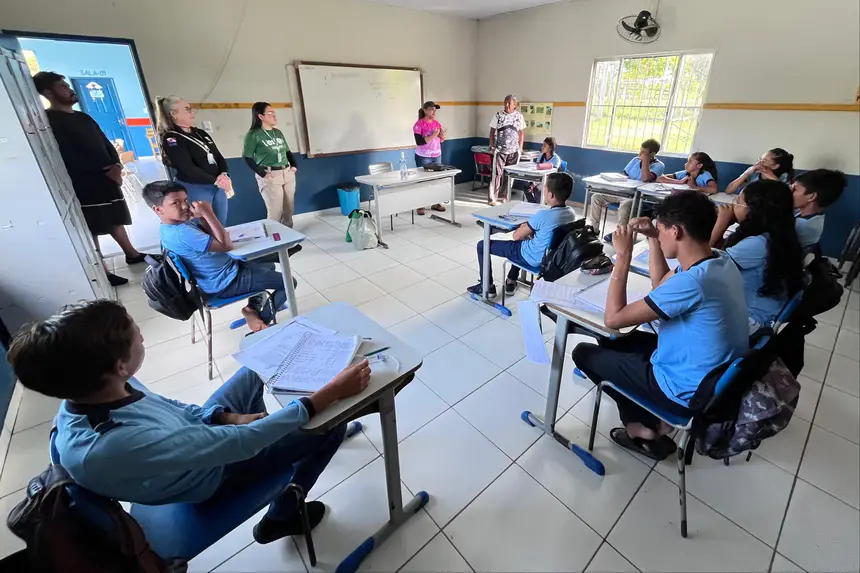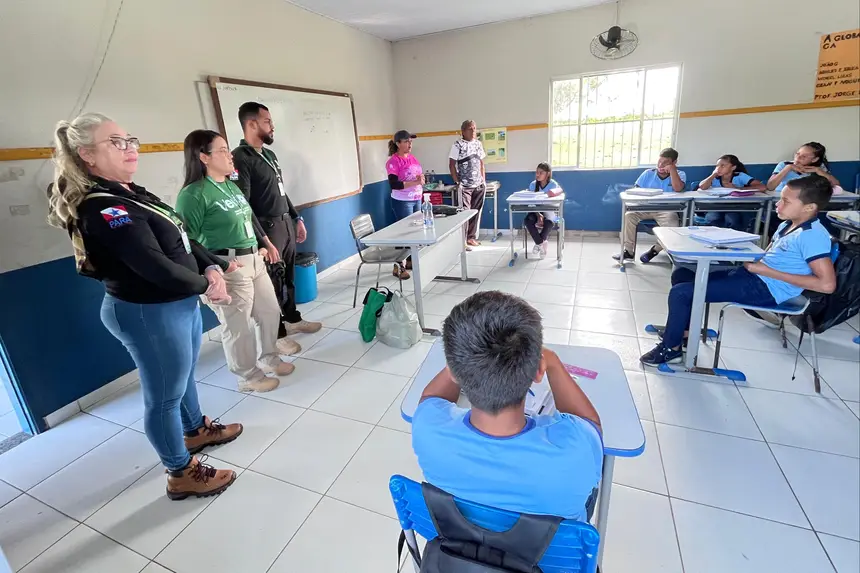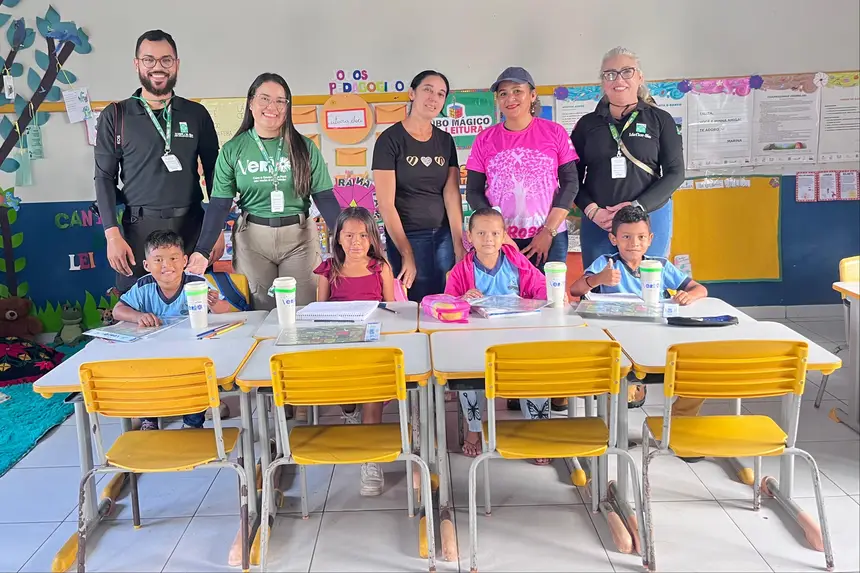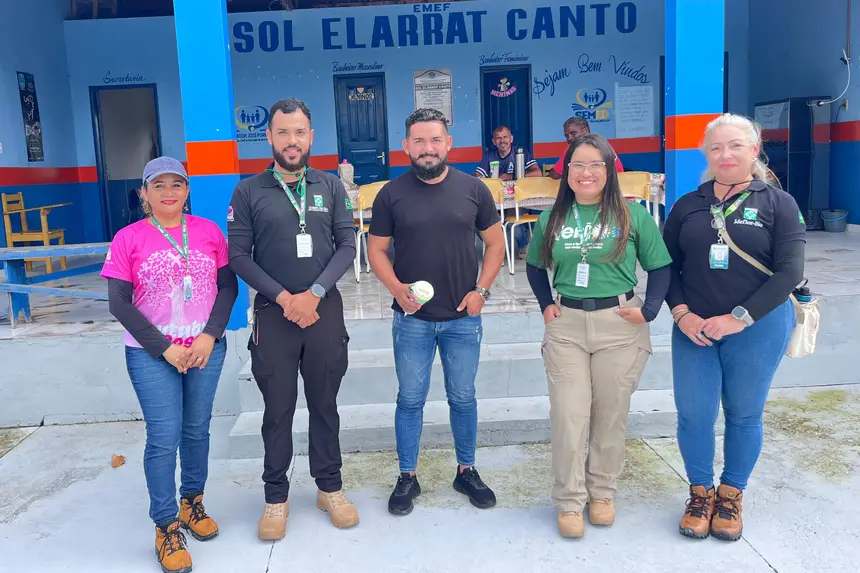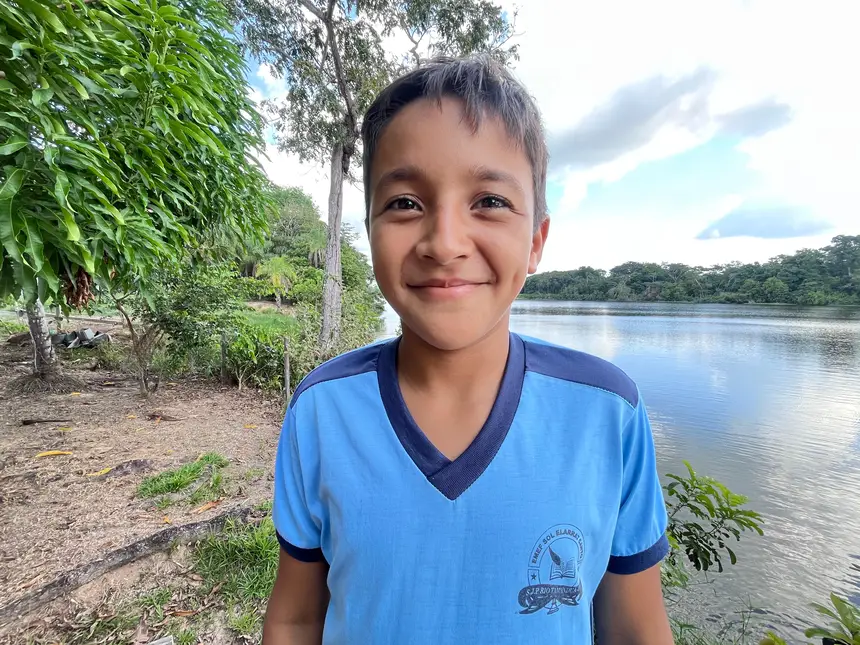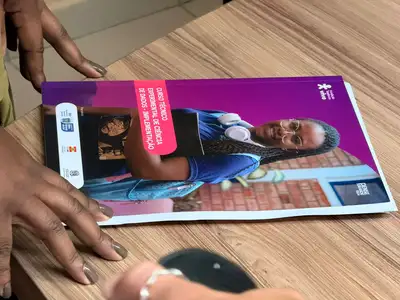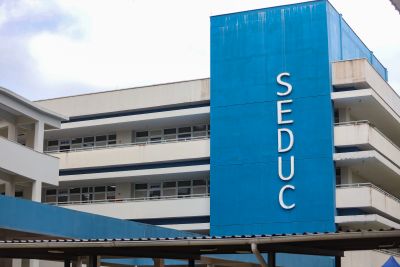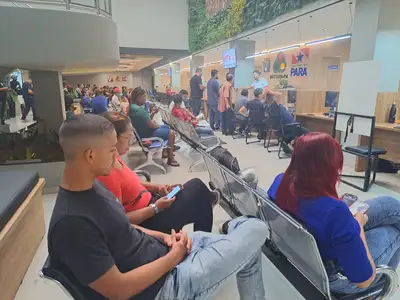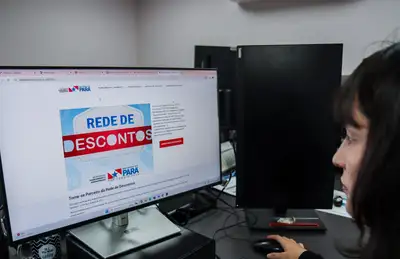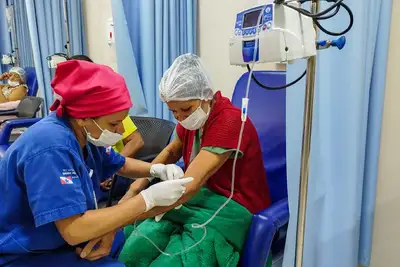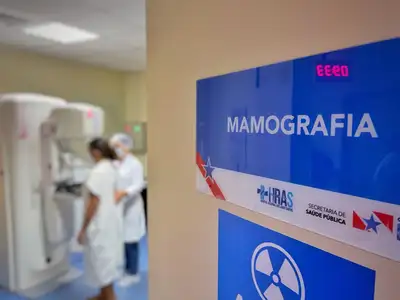Environmental education strengthens students' bond with the forest in a Sustainable Development Reserve in Pará
The action brought playful activities, lectures, and discussion circles about the importance of environmental preservation into the classrooms.
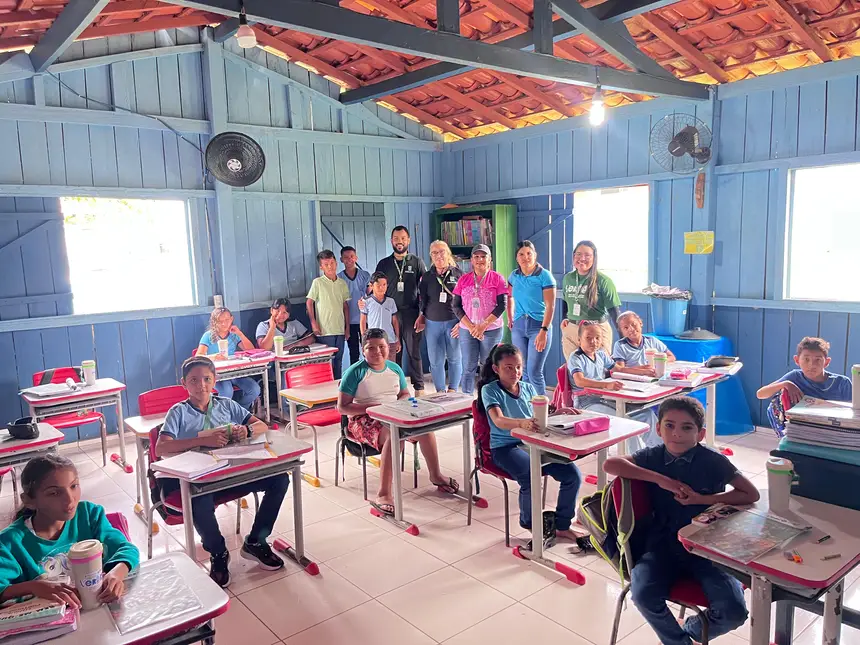
The Municipal School Sol Elarrat Canto, located in Vila Cai, within the Vitória de Souzel Sustainable Development Reserve (RDS), in Senador José Porfírio, received a visit from the team of the Forest Development and Biodiversity Institute of the State of Pará (Ideflor-Bio). The action brought playful activities, lectures, and discussion circles about the importance of environmental preservation into the classrooms.
During the meeting, the technicians from the Conservation Units Management and Monitoring Directorate (DGMUC) developed dynamics focused on the children's daily lives, relating environmental care to the space where they live. For the students, the experience was enriching. "It was cool to learn not to throw trash in the water because fish can eat it and die. I also liked what they said about taking care of the preservation area, so we don't kill animals and protect the trees, which provide shade, wind, and fruits. Even in the game we played, I learned about environmental education. I liked it a lot," said 11-year-old student Kelvisson Soares.
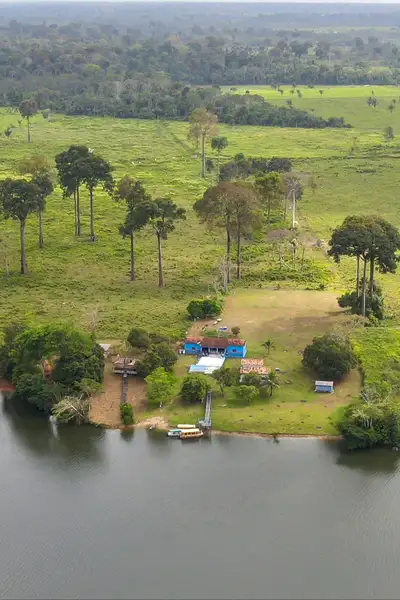
Learning - Teacher Adriana Carla Palheta, who teaches classes from 3rd to 5th grade, highlighted the impact of the visit on the students' education. "It was a remarkable visit. The children showed curiosity and enthusiasm in learning about environmental education. The activities encouraged questioning and discussions, showing that they were engaged. This partnership with Ideflor-Bio is significant because it brings students closer to the reality of the conservation unit where they live and awakens in them a sense of responsibility from an early age," she emphasized.
The school principal, Lamartinhe Corrêa de Castro, also evaluated the action as fundamental to strengthen the community's bond with the reserve. "The visit was very welcoming and crucial for awareness. The students understood better the importance of biodiversity and the preservation of natural reserves. The school is part of this area, and with initiatives like this, we can develop practical projects for reforestation, monitoring of fauna and flora, and involve the entire community in a culture of respect for the environment," he stated.
In addition to lectures, students participated in educational games and discussion circles that encouraged reflections on sustainable practices, such as reducing plastic use and proper waste disposal. For Ideflor-Bio's legal analyst, Carla Barbosa, who also works in the Management Plans Commission (Coplam) of Ideflor-Bio, these initiatives have a multiplying effect. "Environmental education in schools is a fundamental tool for developing critical thinking and awareness in children. They become multipliers of sustainable practices at home and in the community. In the RDS, this work is even more necessary because it directly connects learning with the local reality," she explained.
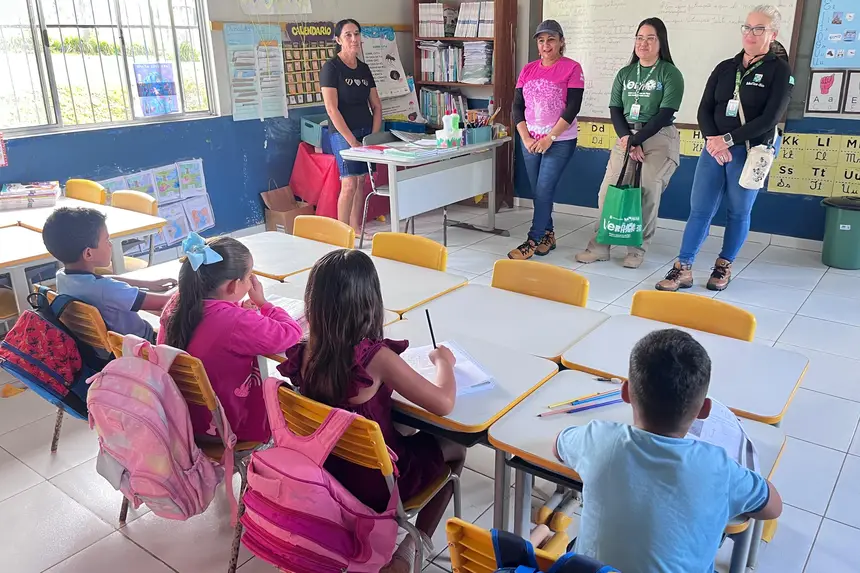
Consolidation - The initiative also reinforces the Pará Government's proposal to integrate local communities into the management of conservation units, ensuring that populations living within or around the reserves become protagonists in environmental protection. In the case of Vila Cai, within the RDS Vitória de Souzel, the school's involvement with environmental themes proves to be strategic for forming citizens committed to conservation.
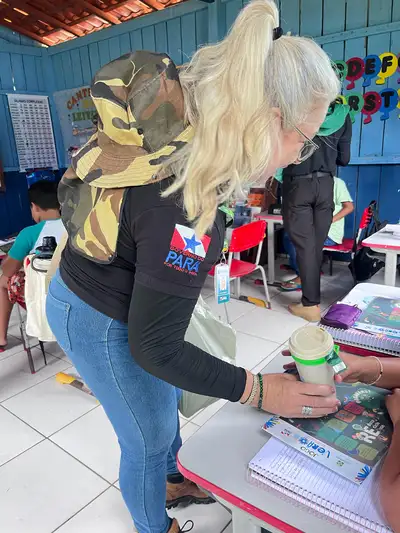
According to the head of DGMUC, Ellivelton Carvalho, environmental education is strategic for consolidating this model. "The presence of Ideflor-Bio in schools of communities located in protected areas is essential. Our goal is to awaken in new generations the understanding that standing forests bring benefits to everyone. When children understand the value of biodiversity and take this knowledge to their families, we are building a more sustainable future," he stated.
The technical team of Ideflor-Bio evaluates that the actions carried out at the Sol Elarrat Canto School will be replicated in other communities of the RDS, strengthening the connection between education and sustainability. "It was just the beginning of a partnership that should expand. The response from the children and teachers shows that environmental education has a transformative effect, capable of generating concrete changes in the way of thinking and acting regarding the environment," reinforced Ideflor-Bio's environmental analyst, Lorena Viana.


